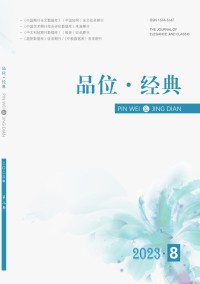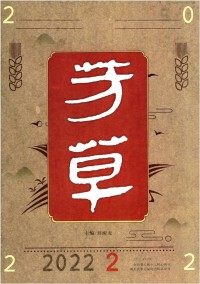经典成语故事
前言:想要写出一篇令人眼前一亮的文章吗?我们特意为您整理了5篇经典成语故事范文,相信会为您的写作带来帮助,发现更多的写作思路和灵感。

经典成语故事范文第1篇
During the time of the Warring States (475-221 BC), there lived a well-known archer2 named Geng Ying whose art in shooting was excelled by none at his time.
One day, as he was standing3 by the side of the King of Wei, a flock of swan geese were flying over. With confidence, Geng Ying said to the king, "The twang of my bow-string might bring down a bird." The King doubted much. Just then a solitary4 swan goose appeared, low and slow in its flight, sad and dolorous5 in its cry. Instantly Geng Ying bended his bow and forcibly pulled the bowstring. Twang! High up went he shrilling6 sound into the air and down fell the bird to the ground. The king admired with bewilderment. Gang Ying then explained: "The bird was flying low and slow, because it was already hurt; it was crying in a bitter tone, because it had lost its companions. Due to the fact that it was already hurt and sad at heart, the twang of my strong bow, that birds dreaded7 most, startled it. The shrilling sound made its heart beat fast, its wings weak, its balance uneven8. Thus it fell down just as commonly as a man drops his chop-sticks, at the thunder-stroke, at a dinner table." Henceforth comes the idiom "A bird startled by the mere twang of a bow-string", illustrating9 a case where a man who had been previously10 and repeatedly frightened became numb11 and stupefied by a new thing of the same nature not knowing how to face the new situation.
惊弓之鸟
经典成语故事范文第2篇
In the Jin Dynasty (265-420) there was a famous writer whose name was Zuo Si who, however, was very naughty and did not like to study when he was a small kid.His father often got angry, and yet young Zuo Si was as naughty as ever and would not study hard.
One day, Zuo Si's father was chatting with his friends. his friends envied him his clever and loverly son. Hearing this, Zuo si's father sighed, "Please do not mention him. My son Zuo si does not study as well as I did when I was young, although I did not study well enough myself. It appears that he is actually a good-for-nothing." So saying, he looked disappointed. All this was witnessed by young Zuo Si. He felt very sad, feeling intensely4 that he would not be able to have a bright future if he did not study hard. So he was determined5 to study assiduously from then on. Day after day and year after year, Zuo Si gradually grew up. Because of his unremitting afforts in hard study, he became an erudite scholar and wrote very excellent essays. The "Ode to the Capital of the State of Qi", which took him one year to write, showed his brilliant literary6 talent and laid the foundation7 for his becoming an outstanding writer. then he planned to write an "Ode to the Capitals of the Three Kingdoms of Wei, Shu Han and Wu" with the local conditions and customs as well as the produce of the three capitals as its content. In order to achieve the desired effect in content, structure and language, he applied8 himself to research work with great concentration9, and was so absorbed in creative writing as to forget food and sleep. It took him ten whole years to finish the writing of "Ode to the Capitals of the Three Kingdoms of Wei, Shu Han and Wu", a literary masterpiece.
The "Ode to the Capitals of the Three Kingdoms of Wei, Shu Han and Wu" was well received by the broad masses of readers after it made its appearance to the public, and people considered it as superbly10 written as the "Ode to the Western Capital (Changan) and to the Eastern Capital (Luoyang)" written by Ban Gu (32-92) and the "Ode to the Western Capital and to the Eastern Capital" written by Zhang Heng of the Han Dynasty (206 B.C. to A.D.220). As the art of printing had not been invented at that time, people who were fond of this "Ode" had to make handwritten copies of it themselves. As there were so many people who vied with each other in making handwritten copies, the supply of writing paper fell short of the demand in Luoyang went up greatly.
This story comes from "The life of Zuo Si" in the book "Literary Field" of The History of the Jin Dynasty. Based on this story, people have coined the set phrase "the price of writing paper went up greatly", meaning the overwhelming popularity of a new work causes shortage of printing paper, to show how popular an outstanding piece of literary work is.
晋代文学家左思,小时候是个非常顽皮、不爱读书的孩子。父亲经常为这事发脾气,可是小左思仍然淘气得很,不肯好好学习。
有一天,左思的父亲与朋友们聊天,朋友们羡慕他有个聪明可爱的儿子。左思的父亲叹口气说:“快别提他了,小儿左思的学习,还不如我小时候,看来没有多大的出息了。”说着,脸上流露出失望的神色。这一切都被小左思看到听到了,他非常难过,觉得自己不好好念书确实很没出息。于是,暗暗下定决心,一定要刻苦学习。
日复一日,年复一年,左思渐渐长大了,由于他坚持不懈地发奋读书,终于成为一位学识渊博的人,文章也写得非常好。他用一年的时间写成了《齐都赋》,显示出他在文学方面的才华,为他成为杰出的文学家奠定了基础。这以后他又计划以三国时魏、蜀、吴首都的风土、人情、物产为内容,撰写《三都赋》。为了在内容、结构、语言诸方面都达到一定水平,他潜心研究,精心撰写,废寝忘食,用了整整十年,文学巨著《三都赋》终于写成了。
经典成语故事范文第3篇
Showing Off One's Proficiency1 with the Axe2 Before Lu Ban the Master Carpenter
in ancient times, Lu Ban was supposed to be a consummate3 master in construction and sculpture. Carpenters respect him as ancestor master. It is said that he once carved a colorful wooden phoenix4 that was so lifelike that it actually flew in the sky for three days. Thus it was considered the height of folly5 to show off one's skill with an axe in front of Lu Ban.
This idiom excoriates6 those who show off their slight accomplishments7 in front of experts.
古代有一个建筑和雕刻技术非常高超的人,名叫鲁班,木匠行里尊称他为祖师。传说他曾用木头制作了一只五彩斑斓的凤凰,能够在空中飞翔三天不掉下来。在鲁班门前摆弄斧子,当然显得有些自不量力了。
“班门弄斧”这个成语,用来比喻在行家面前显示本领。
经典成语故事范文第4篇
宋代岳飞词《满江红》。
在春秋期间,赵惠文王得到了一块稀世玉璧——和氏璧,秦昭王知道后,要以十五城换璧。赵王早就知道秦昭王贪婪狡诈,如果不答应怕秦国出兵攻赵,如果答应又怕一去无回。赵王对这事大感头疼。这时,有人推荐蔺相如,建议让他带和氏璧赴秦,见机行事。处理好这事。
于是,蔺相如带着和氏璧到了秦国,秦昭王在一个偏殿里接待了他。
秦昭王拿了和氏璧看了又看,又叫身边人传看,只是只字不提十五座城池的事。蔺相如见此,怒火中烧。他按捺着怒气对秦昭王说:“和氏璧上有块小暇疵,让我指给大王看。”
蔺相如接过璧,退后几步,靠着柱子站定。此时蔺相如的样子很可怕,愤怒的头发把帽子都顶起来了。他怒瞪双眼,大声说:“大王说好了要用十五座城池换和氏璧,我们赵国把此事当成一件大事,赵王斋戒沐浴后才派我来送璧。没想到大王您如此无礼,在偏殿接见我,和众大臣姬妾传看玉璧,无视我的存在,而且只字不提换璧一事。看大王如此没有诚意,我只好把璧收了回来,如果大王逼迫我,我只好和玉璧一起毁灭了。”说着便准备撞柱。
秦昭王见此,忙向蔺相如道歉,表示愿意以礼相待。蔺相如回到驿馆,命人乔装后带璧回国。五天后,秦王斋戒结束后准备换璧,蔺相如说:
“我怕您没有换璧的诚意,已让人带玉璧回国了。”
秦昭王见事已至此,只好礼送蔺相如回国去了。
经典成语故事范文第5篇
Wang Xi-zhi is one of the most famous calligraphers during the Eastern Jin Dynasty of China. When he was very young, he practiced his art every day and never stopped.
Later he absorbed the strong points of all the other schools of calligraphy1, and developed his own unique style of writing. Because of his achievements, he has been honored as one of China's sages2 of calligraphy.One time, Wang Xi-zhi sketched3 in wood for an engraver4 to cut. Then the engraver found the ink had penetrated5 one centimeter into the wood.
"Ru Mu San Fen6" is got from this story, which means the calligraphy is penetrating7.
Now it is often used to describe expressing sharp ideas or profound views.
入木三分
王羲之是中国东晋时代一个很有名的书法家,他从小就刻苦练字,从不间断,以后又吸取了各个不同书法派的优点,形成他自己独特的个性。因为他在书法上的成就,人们都尊称他为中国书法界的“圣人”。


